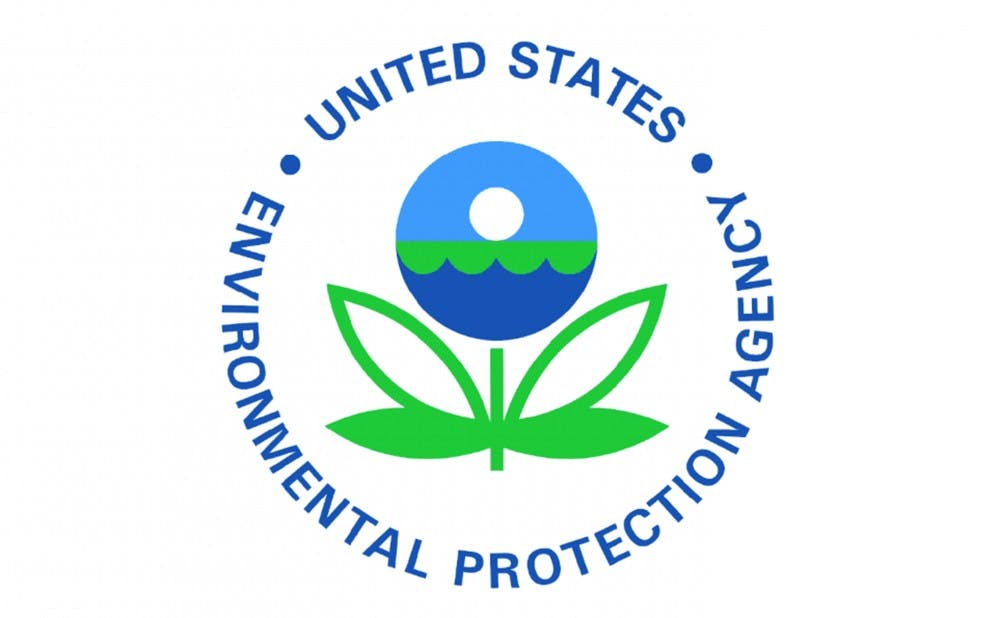Research funding from the federal government could see declines if budget cuts are implemented by the new presidential administration. So, how will this affect Duke’s environmental research?
The Trump administration called last month for a temporary freeze on all EPA grants, which was eventually lifted. But the administration has also floated significant cuts to the agency's budget, perhaps larger than $800 million. Similar plans have been proposed for other federal agencies.
“From [Trump’s] campaign and the past history of Republicans in Congress—and they are very public about it—there is not a lot of support by them for research into climate science, research into alternative energy resources or alternative research technology,” said Chris Simmons, associate vice president in the office of government relations.
Simmons said that Duke, compared to other universities, is one of the largest recipients of federal research funds. Simmons noted that funding for the EPA, Department of Energy and National Science Foundation might be pulled back, but that predicting exactly what the administration will do is impossible.
But he added that even if Trump wanted to eliminate entire departments, that would not be a simple task for a new president and that he cannot remember the last time someone was successful doing this.
Nicholas School Dean Jeffrey Vincent wrote in an email on Tuesday that he is “deeply concerned” about scientific funding from the Trump administration, and that he is in active communication with Simmons' office about developments in Washington.
“Humanity faces a host of major challenges, including tough environmental ones, and we can’t hope to address them without a stronger scientific research capacity than we currently have,” he wrote.
None of the Nicholas School's current grants have been cancelled, Vincent wrote. He added that the EPA is not currently a major source of funding for the Nicholas School, but that budget cuts could still potentially affect researchers. The University has received $15,308,715 from 26 grants since 2003, according to the EPA's Grants Awards Database, but there are only two ongoing grant-funded projects that started in 2013 and 2014.
“We have only a couple of faculty members who currently have either an active grant from the agency or a proposal under review with it," Vincent wrote. "We also have a couple of graduate students who are on fellowships funded by EPA. Although a reduction in our current level of EPA funding would not have a big impact on the Nicholas School overall, I’m concerned about how a reduction would affect those particular faculty members and students."
Although Vincent indicated cutting EPA funding might not significantly hurt the Nicholas School's budget, the EPA is not the only agency that provides grant funding to Duke as a whole. Looking at grant funding data from the National Institute of Environmental Health Services alone, about $7.5 million went to University researchers in 2015 and $8 million in 2016.
Vincent raised concerns that the pending confirmation of Oklahoma Attorney General Scott Pruitt as head of the EPA would be felt more strongly in areas outside of research funding. He wrote that the EPA is primarily a regulatory, and not funding, agency. Any weakening of that regulatory mission would risk progress toward a cleaner and healthier environment, he wrote.
Even if Trump wanted to directly make significant changes to academic research funding, he would be looking at a lengthy process, Simmons explained. When the president proposes a budget, Simmons and his office go through the spending plan and find the aspects of it that would positively impact the University. They then push congressional representatives to support those parts and oppose harmful components.
"We would ask our members of Congress to support Duke and support our researchers and work against the president’s budget as it makes its way through Congress,” Simmons said.
That being said, he acknowledged that the University is “definitely in a wait-and-see mode." Although his office works to support funding for academic research, it is up to Duke’s faculty to compete for the grants—something they have been very successful at in the past.
“We have always been a consistent supporter of research into alternative technologies for energy, climate research and research that is done at Beaufort to study erosion," Simmons said. "Research that impacts our environment is a huge, huge part of Duke’s research portfolio, not only at the Nicholas School but across the University."
Get The Chronicle straight to your inbox
Signup for our weekly newsletter. Cancel at any time.
Bre is a senior political science major from South Carolina, and she is the current video editor, special projects editor and recruitment chair for The Chronicle. She is also an associate photography editor and an investigations editor. Previously, she was the editor-in-chief and local and national news department head.
Twitter: @brebradham
Email: breanna.bradham@duke.edu

